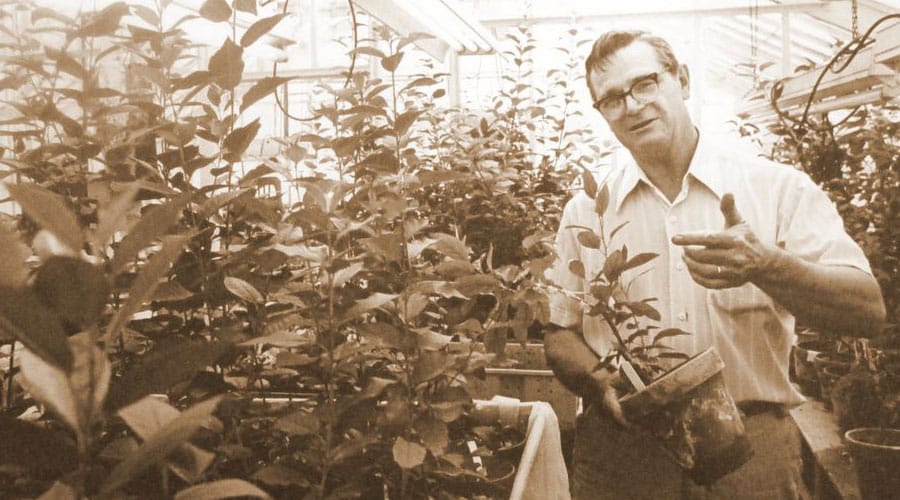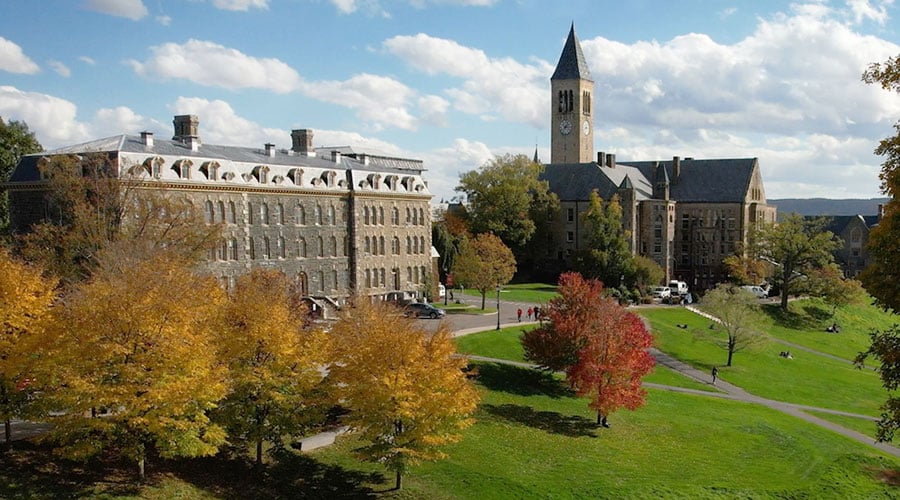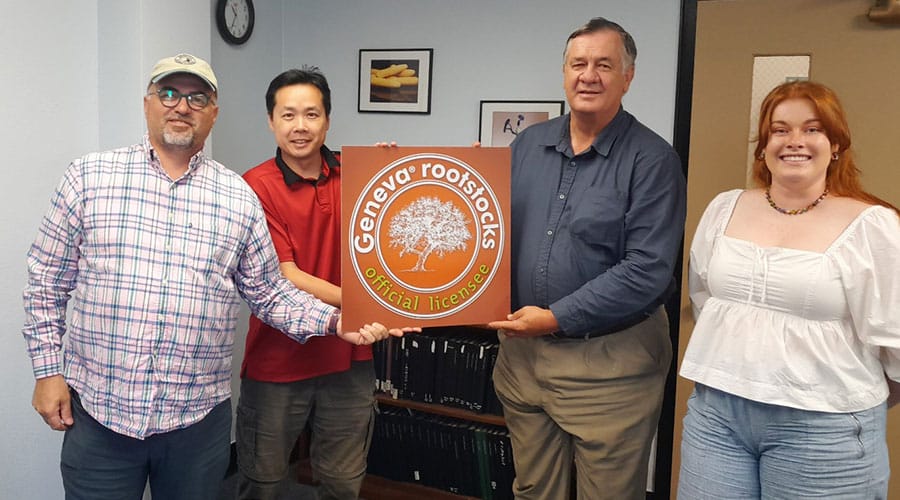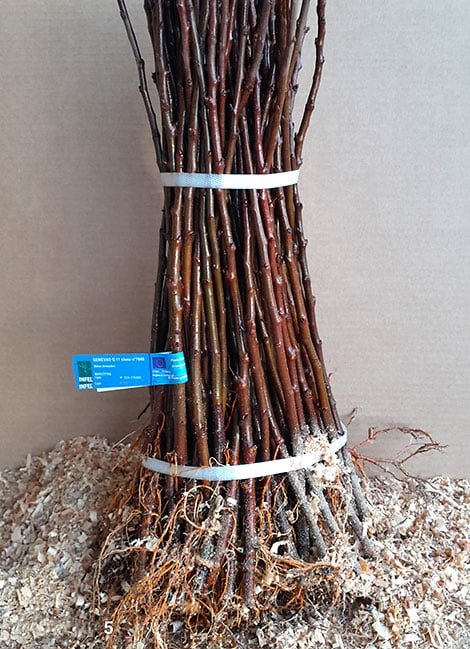THE PROGRAMME
The Geneva® apple rootstock breeding programme was launched in 1968 at Cornell University by Dr James Cummins and Dr Herb Aldwinckle, at the Geneva NY station.
The aim of this programme was to develop new rootstock genotypes with improved characteristics, both in the nursery and in the orchard, better adapted to the biotic stresses common in eastern North America, such as fire blight (Erwinia amylovora), crown rot (Phytophthora spp.) and woolly aphid (Eriosoma lanigerum).
Dr James Cummins
Cornell University, Geneva Station Geneva NY
Dr Cummins headed Cornell University’s rootstock breeding programme until his retirement in 1993. In 1998, it was transformed into a joint breeding programme with the US Department of Agriculture (USDA), with a USDA breeder as principal scientist and several Cornell scientists as cooperators.
During their selection, these new rootstocks demonstrated a high level of productivity as well as a greater or lesser tolerance to soil fatigue when replanted.
Since his arrival in 2001, the new hybridizer, Gennaro Fazio, has been developing the programme using a vast genetic base including wild apple species from Kazakstan and other Central Asian countries.
The programme is currently developing disease- and pest-resistant rootstocks to increase orchard productivity and enable growers to precisely adapt apple cultivation using rootstocks adapted to complex variety-soil-climate combinations around the world.
These 50 years of effort in the field of apple rootstock breeding have led to the development of a large number of selections which are at various stages of experimentation and commercial distribution throughout the world.
The Geneva® Rootstocks team
From left to right: Dr Genneao Fazio (USDA-ARS), Dr Albert Y Tsui (CTL), Dr Terence Robinson (Cornell AgriTech), Emily Courson (CTL)
For Europe, the development of Geneva® apple rootstocks has been commissioned to Europa Fruit Tree Rootstocks (EFTR).
